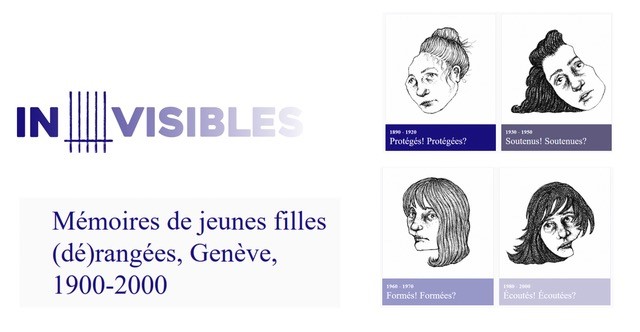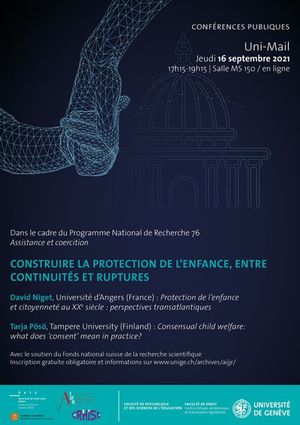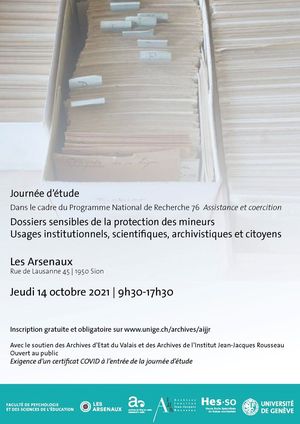Programme National de Recherche 76


Vidéo disponible sur Mediaserver
Protection de l’enfance et citoyenneté au XXe siècle : perspectives transatlantiques
David Niget

Résumé
Dans le champ de la protection de l’enfance, le second XXe siècle est marqué par une double évolution dont témoigne la circulation transatlantique de nouveaux paradigmes : la montée en puissance des droits de l’enfant dans l’exercice de la justice des mineur·es, et la non moins puissante institutionnalisation de l’expertise psychiatrique et psychologique dans l’orientation des jeunes délinquant·es et en danger. Dans les deux cas, il s’agit de faire apparaître un sujet juvénile; mais entre le sujet de droits et le sujet psychique existent des tensions que le dispositif judiciaire et institutionnel peine à réguler. Entre autorité et liberté, entre protection et citoyenneté, entre subjectivation et autonomisation, l’expérience sociale des jeunes pris en charge est traversée d’injonctions contradictoires. Un des objectifs de mon travail de recherche en histoire est de faire apparaître leur agentivité face à ces modes de gouvernement de la jeunesse « irrégulière ».
David Niget est maître de conférences en Histoire à l’Université d’Angers / CNRS, UMR-TEMOS. Ses travaux portent sur l’histoire de la jeunesse, et en particulier sur la question des droits des enfants et de la citoyenneté. Il a travaillé sur la genèse de la justice des mineurs dans une perspective transnationale. Portant son attention sur la question de l’expertise médicale et psychologique dans le champ de la jeunesse jugée « irrégulière », il s’est interrogé sur la question des « paniques morales » à l’égard de la jeunesse, en particulier en direction des jeunes filles. Il est actuellement membre du projet de recherche pluridisciplinaire de recherche « EnJeu[x], Enfance et jeunesse », dans lequel il coordonne l’axe « Droits des enfants et citoyenneté ». Il est l’auteur de « From Criminal Justice to the Social Clinic: The Role of Magistrates in the Circulation of Transnational Models in the Twentieth Century », in William S. Bush et David S. Tanenhaus (dir.), Ages of Anxiety: Historical and Transnational Perspectives on Juvenile Justice, New York, New York University Press, 2018, p. 15‑38. À paraître: ““Boy Problems” and “Girl Problems”: Gender, sexuality, agency, and the generation gap”, in James Marten, Oxford Handbook of the History of Youth Culture, Oxford University Press, 2020.
Consensual child welfare: what does 'consent' mean in practice ?
Tarja Pösö

Abstract
Child welfare is often approached as a coercive practice which, against the will of parents and children, intervenes in family life and sometimes even separates children from their parents for the sake of ‘protection’. Research has accordingly given more attention to coercion and involuntary measures than consensual practices. Nevertheless, it is known that child welfare systems in several countries undertake measures, including out-of-home placements, which are ‘voluntary’ and are based on the consent given by parents and children. On what terms, if any, is it legitimate to consent to those services, child removals especially, and to request such consent?
Consent in child welfare decision-making is explored in this presentation by using a variety of data (legislation, interviews with social workers, observations of hearings, case files, think aloud data and focus groups with stakeholders). The presentation is based on an inter-disciplinary study of social work, law and communication examining consent and objection in child welfare decision-making in Finland, which has a child welfare system which employs a lot of ‘voluntary services’. Even the majority of the placements (‘care orders’) which heavily restrict parents’ rights are based on consent given by parents and children (12 years or older).
The findings demonstrate the contradictory dimensions of consent. While some findings contest the very nature of consent, there are also reasons to claim that consensual practices also have certain advantages.
Tarja Pösö is Professor in Social Work at Tampere University, Finland. She also works as a part-time Professor II in the Centre for Research on Discretion and Paternalism at the University of Bergen, Norway. She has studied child protection for a number of years with a keen interest in social work practice, ethics and methodologies as well as comparative child protection research. She is one of the co-editors of Child Welfare Removals by the State by Oxford University Press (2017), Errors and mistakes in child protection by Policy Press (2020) and Adoption from Care – International perspectives on children’s rights, family preservation and state intervention (forthcoming in 2020/2021).

